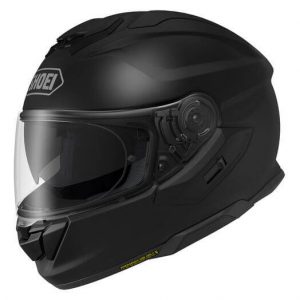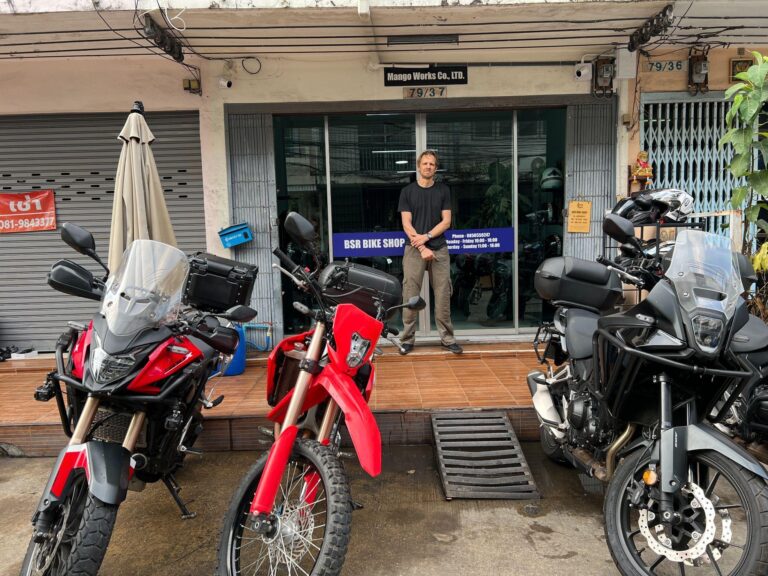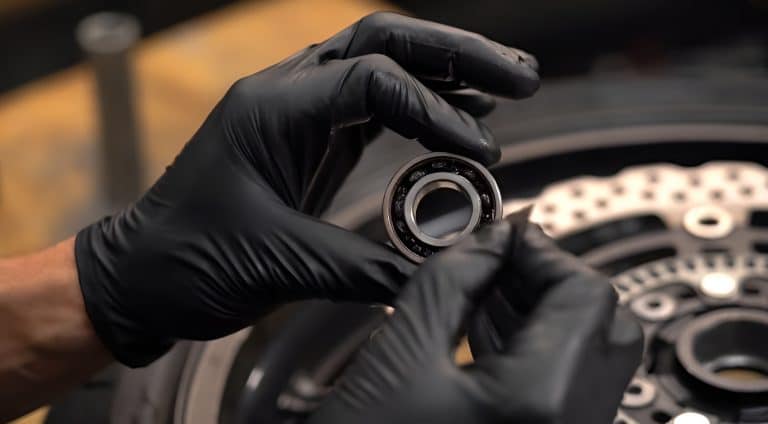Motorcycle helmets face a bleak and uncertain future once they outlive their usefulness because the carbon fiber composite, fiberglass, EPS, and plastics used in their construction gradually lose their effectiveness. Typically, this occurs after 7 years from the manufacture date, 5 years of normal usage, or after a crash. Yet re-selling or reusing an old helmet for its original purpose can pose a significant risk to innocent lives.
As an individual who values environmental sustainability, I actively seek opportunities for recycling whenever feasible, or I engage in the creative practice of upcycling and repurposing the helmet for other good. Alternatively, I find great satisfaction in donating my retired helmets to noble causes, where they can serve as prop helmets, contribute to educational initiatives, or promote safety awareness among aspiring riders.
Now, you may wonder about the specific ways in which I accomplish these goals. Here are some of the approaches I have taken to breathe new life into my old helmets, including the products I’ve used to maintain their freshness:
Revive Your Helmet: Top Helmet Cleaning Products for Ultimate Care
Scroll to the right to find out where to buy, discover the best prices, and see if you might be lucky enough to get a discount from the sellers.
| Helmet Cleaner | Category | Why I Like It | Check & Shop Now |
|---|---|---|---|
| Muc-Off Helmet Cleaning Kit | Best All-Round | Includes helmet, visor and goggle cleaners, foam fresh, anti-fog, & microfiber cloth | RevZilla | Amazon |
| Molecule Helmet Care Kit | Best Budget | Includes anti-fog, cleaner polish, refresh, & rain repellent | Amazon |
| Motul Helmet Clean | Best Exterior | Excellent bug softener with no residue | RevZilla | Amazon |
| Motorex Helmet Care Spray | Best Interior | Pleasant odor with lasting results | RevZilla | Amazon |
| Tub O' Towels Multi-Surface Wipes | Best Wipes | Heavy-duty quick cleaning wipes | Amazon |
| AmazonBasics Microfiber Cloth | Best Microfiber Cloth | Polyester/polyamide blend | Amazon |
15 Brilliant Ideas to Give Your Old Motorcycle Helmet a Second Life

Having been involved in motorcycling for over 50 years, my helmet collection spans from my first, the iconic 1972 AGV X-3000 honoring Giacomo Agostini “Ago” (a 14-time world champion), to my latest acquisitions, the modern AGV K6 full-face road/street helmet and the advanced AGV AX9 Carbon adventure touring helmet. And when it comes to my old motorcycle helmets, I’ve experimented with these 11 exceptional ideas to make them useful:
1. Recycle It
Try to recycle your old motorcycle helmet whenever possible. You can reach out to local recycling facilities to inquire if they accept old helmets for proper disposal. While you won’t see your helmet again, you can take solace in knowing that it won’t be left to gather dust in your garage and will be repurposed for other uses.
Every component of a helmet can be recycled with the appropriate procedures. Here is my analysis:
Helmet Components: Materials, Lifespan, and Recyclability
| Parts of a Helmet | Typical Material | Lifespan | Recyclability |
|---|---|---|---|
| Premium Helmet Shells (Above $1,000) | Carbon Fiber (Carbon Composite, Carbon-Kevlar etc.) | Stable indefinitely | Difficult |
| High-End Helmet Shells ($500-1,000) | Fiberglass (Woven, Single Continuous Strand, Laminate, Random Weave, etc.) | Up to 50 Years or Even More | Difficult |
| Mid-Range Helmet Shells (Around $450) | Kevlar (Organic Fibers, Synthetics, etc.) | 5 Years | Easy |
| Entry-Level Helmet Shells (Below $300) | Plastics (Polycarbonates) | 5-10 Years | Difficult |
| Helmet Liner Foam/Energy Absorbing Layer | Expanded Polystyrene (EPS) | 10-20 Years | Difficult |
| Face Shield (Visor) | Polycarbonates (PC) | 5-10 Years | Difficult |
| Interior Comfort Liner, Chin Strap Padding, and Vent Cowls | Polyvinyl Chloride (PVC) | 5-10 Years | Difficult |
| Comfort Liner Interior, Chin Strap Webbing | Nylon or Polyester | Decades | Medium |
| Visor | Acrylic | 5-10 Years | Difficult |
| Straps and Buckles | Nylon or Polypropylene (PP) | Decades | Medium |
Kevlar (aramid fiber) material, exemplified by HJC’s PIM (Premium Integrated Matrix) shell as showcased in their $429.99 HJC RPHA 11 Pro helmet, has a lifespan ranging from 5 to 10 years. Equally noteworthy are advanced polycarbonate plastics, as employed in the SNELL M2020D rated HJC i10 helmet priced at $159.99, which also lasts 5 to 10 years.
In stark contrast, fiberglass, predominantly featured in Arai helmet shells and the AGV Model 160 (the first fiberglass helmet), can endure for up to 50 years. Carbon fiber, typically found in premium helmets like the $4,095.95 Arai Corsair-X RC and the $1,924.95 AGV PISTA GP RR – ASSEN, is known for its stability that lasts indefinitely.
Acrylonitrile Butadiene Styrene (ABS), the most commonly used material for ski helmets, bicycle helmets, skateboards, and safety helmets, finds its place in cheap motorcycle helmet shells. ABS has a lifespan of 50 to 80 years (averaging 70 years).
Yet there’s a twist—all these helmet shell materials, with the exception of Kevlar, pose challenges when it comes to recycling. In light of this, if recycling is something you’re considering, I highly recommend proactively offering your old helmet to local recycling facilities.
When it comes to the lifespan of other helmet materials, expanded polystyrene (EPS) typically lasts around 10-20 years, polycarbonate (PC) lasts for 5-10 years, polyvinyl chloride (PVC) also lasts for 5-10 years, and acrylic lasts for 5-10 years as well. Unfortunately, these materials are also difficult to recycle.
Polyester generally has a longer lifespan compared to polypropylene, but all three materials, including nylon, are considerably easier to recycle. Nylon surpasses polyester in terms of durability, as it’s known for its strength, resistance to abrasion, excellent resistance to mildew, and extended lifespan. In specific temperature conditions, polypropylene lasts approximately 5 years at 250°F, 10 years at 230°F, and 20 years at 210°F.
P.S: Now, you might be wondering why you should replace your helmet after 5 years of regular use or 7 years from the date of manufacture, even though the materials have a lifespan that extends beyond the recommended replacement period. It’s because these materials start to deteriorate in their protective properties, compromising your safety. Why risk it when you can easily get a replacement?
2. Trade It In

Classic Harley-Davidson occasionally hosts trade-in events where you can bring in your old helmet and receive a generous 20% discount on a new one. Similarly, BMW Motorrad often offers around $130 (£100) towards the purchase of a new helmet when you trade in your old one.
But most other manufacturers I’ve spoken to don’t want the old helmet back, and understandably so, because the materials used in helmets are a tad difficult to recycle economically. Even so, Klim offers free replacements for K1R, TK1200, Krios, and Krios Pro helmets you crash in (within the first 5 years of your purchase and subject to screening by their customer service). They only want the police report and images of the crashed gear and not the old helmet itself.
Shoei helmet vendors also often have helmet replacement policies that give a generous discount for their existing clientele should they be involved in a crash and need a new helmet. AGV also introduced the “Trade And Save” program for a limited time from March 15, 2019, until May 15, 2019. During this period, customers were required to physically bring in their old helmets, regardless of the brand, to Dainese stores (Dainese owns AGV). In return, they would receive a coupon for 20% off any AGV helmet.
In a press release, Roberto Sadowsky, the former Executive Vice President of AGV North America (I, Michael Parrotte, also served as the Vice President of AGV Helmets America for 25 years from its introduction in the United States market in 1977 to 2002), expressed his excitement about launching the program. He stated,
“We’re excited to be launching the AGV Trade And Save program and offering a significant discount on our helmets, from the race-ready FIM-homologated Pista GP-R to the full-carbon Sportmodular touring helmet, or any of the AGV legends collection and all models in between.”
Like Shoei, AGV helmets are known for their higher price range, so a 20 percent discount can make a significant difference. It wouldn’t be surprising if they were to introduce such a program again soon, and who better to give you a heads up? With that in mind, here is a list of Dainese stores:
Dainese Store Locations in the United States ( As of August 2025)
| City | Address | Postal Code |
| Chicago | 1216 N Clybourn Ave | 60610 |
| Dallas | 1118 N. Riverfront Blvd. | 75207 |
| Las Vegas | 6825 S Las Vegas Blvd | 89119 |
| Los Angeles | Lincoln Blvd. 1418 | 90401 |
| Miami | 1850 NW 117th Place | FL 33182 |
| New York | 140 6th Avenue | 10013 |
| Orange County | 1645 Superior Avenue | Costa Mesa 92627 |
| Orlando | 100 W. Livingstone St. | 32801 |
| San Diego | 3740 Rosecrans St. Suite F | 92110 |
| San Francisco | 131 South Van Ness Avenue | 94103 |
In Italy (the birth country of AGV), you can find the D-Store in Bologna at Via Stalingrado 71/5b, in Milan at Via Tertulliano 3, and in Rome at Via della Penna 13/21, among others. In Germany, you can find one in Berlin at Hohenzollerndamm 12, in Stuttgart at Rotebühlstrasse 59, and other locations throughout the country. London still maintains a single Dainese store at 56 Commercial St.
Despite the shocking recent sale—Dainese sold for €1 to creditors amid €300 million in debt—reports indicate that the company expects normal operations, including workforce, supplier relationships, and customer service, to continue without disruption.
3. Donate It

-
To a School
It’s not uncommon to witness individuals and renowned riders generously donating their old helmets to educational institutions. It’s truly inspiring to see how they contribute to making a difference in the lives of others. Teachers utilize these helmets to teach safety and spark the imaginations of young learners. Moreover, the vintage design of these helmets resembles the iconic look of real astronaut gear, further captivating the students’ attention.
-
To a Rider Training Facility
And if you’ve ever been to a motorcycle riding school, such as the California Superbike School, where I have had the privilege to visit and ride on numerous occasions, it’s normal to find instructors or experts donating their old, yet still in good condition, helmets to young riders.
-
To a New Rider
You may also consider donating your old helmet, provided it’s within 7 years of the date of manufacture or under 5 years of normal use, to a passionate young rider in your neighborhood. New riders often lack the budget for a proper helmet, and they typically ride at slow speeds in controlled environments, minimizing the risk of serious accidents.
-
To an Emergency Training Facility
Your local police and fire departments (and other non-governmental organizations that offer first aid courses and first responder training will gladly accept your old helmet donation regardless of its condition.
But before performing this act of kindness, ensure the helmet is in working order with a chinstrap, interior padding, and visor intact. In addition, thoroughly clean the helmet with a bottle of Motul Interior Helmet cleaner, which I personally rely on for its gentle and effective cleaning properties. Your donation can positively impact a young rider’s experience.
4. Start a Helmet Collection

The likes of Giacomo Agostini, Valentino Rossi, Jorge Lorenzo, and Marc Márquez have private and team helmet collections for those special lids that spearheaded them to victory or even humiliating defeat. You too can start your own modest helmet museum, especially if you have inherited a sizable number of old-timers. People collect all sorts of things, and you might be surprised just how much your collection is just a few years down the line.
You can show them off in your house, restaurant, clubhouse–so many options. All you have to do is clean up the lids and make sure that they have all relevant information, such as date of manufacture, model, size, and finish. Remember to clearly designate them as show helmets and not to be confused with those currently in service. Otherwise, someone might pull one on by mistake and ruin it.
Besides, good helmets are incredibly expensive, while others are absolutely stunning, and it would seem wasteful to toss them away. And although helmets expire quite early (after 5 years of normal use), they’re often made of thermoplastics, fiberglass, and even carbon fiber composites, which are strong and hardy lasting up to several decades. The same goes for the fine finish and paintwork whose only nemesis is the sun’s UV.
And because of this longevity, you can also choose to repurpose your expired motorcycle helmet in any of the following creative ways to enjoy it for years to come:
5. Repurpose It As a Pet Bed

An old helmet can make a cozy resting spot for your furry feline friends. You may have already caught your adorable little buddies sneaking a nap or two inside your helmet when you inadvertently leave it on the floor.
In light of this heartwarming revelation, why not let them enjoy it as their designated bed? It’s a practical and delightful way to repurpose the old helmet, and you’ll also get the added joy of witnessing your beloved gear being put to good use every now and then.
6. Use It As a Planter

If gardening is your thing, you can embark on a delightful project that combines creativity and sustainability. Take a moment to reimagine the purpose of your old helmet, which has served you faithfully in its previous life, protecting you from unforeseen dangers and adventures.
Instead of letting it gather dust or tossing it aside, why not transform it into a captivating plant stand that not only showcases your green thumb but also adds a touch of whimsy to your garden or living space?
7. Turn It Into a Birdhouse

For those of us living in an urban setting, hours, maybe days, can go by without seeing a wild bird fly by the window. But all that can change if you allow them to perch and nest in your patio. Helmets have the shape and room that little birdies consider prime real estate.
8. Create a Unique Lamp

They’re not necessarily cut out to be light fixtures in their retirement, but a helmet lampshade would be a feast for the eyes. Beware of the risk of electric shock, though, and only embark on electric DIY projects after electrical safety training or a hire a professional to do it.
9. Turn It Into a Bookend
So, you like bikes and books? Then, there is no reason you can’t make a bookend out of your expired helmet to support your favorite reading list.
10. Use It As a Halloween Costume

Your old lid can be a defining piece in a costume for Halloween. Whether it’s Darth Vader or Predator, a motorcycle helmet forms a good base for the headdress.
11. Use It As a Paperweight
At the very least, your picturesque helmet can sit and look pretty as a desk accessory. The perfect guise, if you work for the motorcycle industry, is to use it as a paperweight.
12. Create a Cool Wall Hanging/Shelf
Speaking of cute, helmet wall hangings can be pretty darn cute. Their unique designs and display on the wall can add a charming touch to any space.
You can cut the helmet in half horizontally, then mount it on the wall with the cut side facing up to create a unique wall hanging that also works as a shelf.
13. Create An Art Piece
Get creative and turn your old helmet into a unique art piece. You could paint it, add designs, or even turn it into a sculpture using papier-mâché, clay, or other sculpting materials.
14. Turn It into A Wall Clock or A Mirror
Feeling more crafty? Try removing the helmet’s visor and padding, then attach a clock mechanism in the center or a mirror.
You can decorate the outer surface of the helmet or leave it as is for a more industrial look. Now have a cool piece of decor that serves a practical purpose.
15. Use It As A Bowl or Tray
Another unique way to make use of your old helmet is to turn it into a bowl or tray for keys, coins, or other small items. All you gotta do is cut the helmet in half horizontally and place it on a table with the bottom half facing upwards.
What NOT to Do With Your Old Motorcycle Helmets

As we wind up, I hope you get that we’re trying to avoid the worst-case scenario where your helmet ends up in a landfill or, worse yet, on someone else’s head offering little to no protection. Here are more things you absolutely should not do with your expired helmets!
- Don’t Burn Your Old Helmets: If all else fails, then toss your helmet into the bin marked recyclables and let the city deal with it. Burning your helmet can be detrimental to your health and those around you, as some of the materials, such as polycarbonates, can produce cancer-causing smoke and other toxins that irritate breathing. But yes, if you live out on the moon, quite literally, then you are allowed to light a helmet bonfire.
- Don’t Throw it in With Regular Trash: The problem is helmets are non-biodegradable, and throwing yours there in one piece could encourage some dumpster divers to pick it up and resell it, causing more harm than good.
- Don’t Sell Your Expired Helmets: Selling defunct helmets is a big NO! If you have decided that they are unfit for your own protection, it goes without saying that you wouldn’t want to put someone else at risk either.
- Don’t Rebuild/Refurbish Your Old Helmet: Don’t attempt to reconstruct a crashed or expired helmet. I mean, technically, an old helmet is better than bare skin but replace it as soon as you can.
Pro Tip: Contrary to popular myth, simply dropping your helmet from your hand or gas tank does not necessarily require a replacement. A well-made helmet remains uncompromised even if it encounters a rough patch of concrete. But I recommend replacing your helmet if it has been involved in a crash after 5 years of regular use, or 7 years from the date of manufacture.
Finally, I implore you to be a goodwill ambassador. It’s disheartening to know that approximately 41% of riders continue to use outdated and unsafe helmets.
While this habit is more encouraging than unhelmeted use, it is crucial that you spread the word to all your two-wheeling buddies; helmets have a set expiry date. And no it’s not just a sales pitch, after the prescribed period, you cannot count on the various materials and the adhesives and stitching that put it all together to hold in a proper crash.
Michael’s Summary and Conclusion
Starting a helmet collection is an easy choice for me! I don’t think I’ve ever thrown away a helmet. I’ve only given a few away to friends or students. But 99% of every helmet I’ve ever owned has made its way into my collection, which now exceeds 300 helmets!
FAQs — I Have the Answers!
Here are common frequently asked questions (FAQs) about what to do with an old helmet:
Q: Do Motorcycle Helmets Expire When Not Used?
Yes, even without use, helmets are typically good for only 7 years after their date of manufacture because the materials in the helmet like padding, plastics, and glue get weaker over time due to natural degradation.
Q: How Long Do Motorcycle Helmets Last?
Motorcycle helmets expire 7 years after the date of manufacture or 5 years of normal use, whichever comes first. Further, a helmet is only good for one crash (impact) after which you need to replace it. And so, a good rule of thumb is to replace your helmet every five years or so, even if you were not involved in a crash.
Q: What Can I Do With My Old Bike Helmet?
You can donate your old helmet to first-aid and rider training services, try to have it recycled, or upcycle it by repurposing it for other uses around your home. If it’s still in working order and not expired, you can lend a friend who rides without one.
Q: Can You Reuse a Motorcycle Helmet?
No. A motorcycle helmet is designed to mitigate the impacts of a single crash effectively. There are no possible repairs or refurbishing to restore its integrity outside of the factory where it was made.
Q: What Do You Do With Your Motorcycle Helmet When You Go Places?
When you arrive at your desired destination, it’s best to keep your helmet in panniers or top boxes if your bike is equipped with one. Otherwise, try to secure the helmet on the bike or other location where it might not fall, be scorched by the sun, or get damaged or stolen by passersby.
Q: What Can I Do With Old Safety Helmets?
The best option is to give away your old safety helmets to a noble cause that does not involve the helmet being used to ride at speed on public roads.
Information for this article was partially sourced and researched from the following authoritative government, educational, corporate, and nonprofit organizations:
P/A












